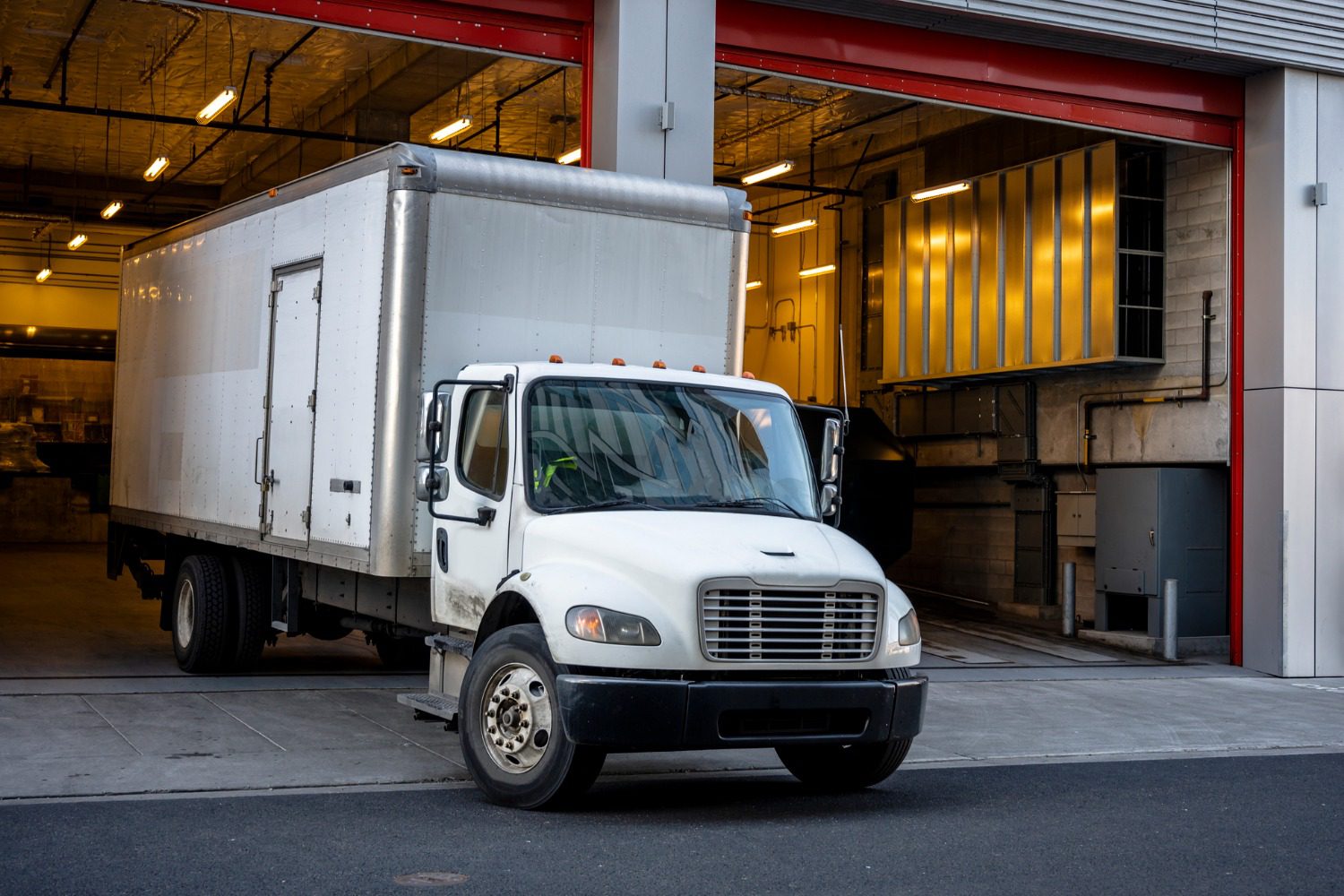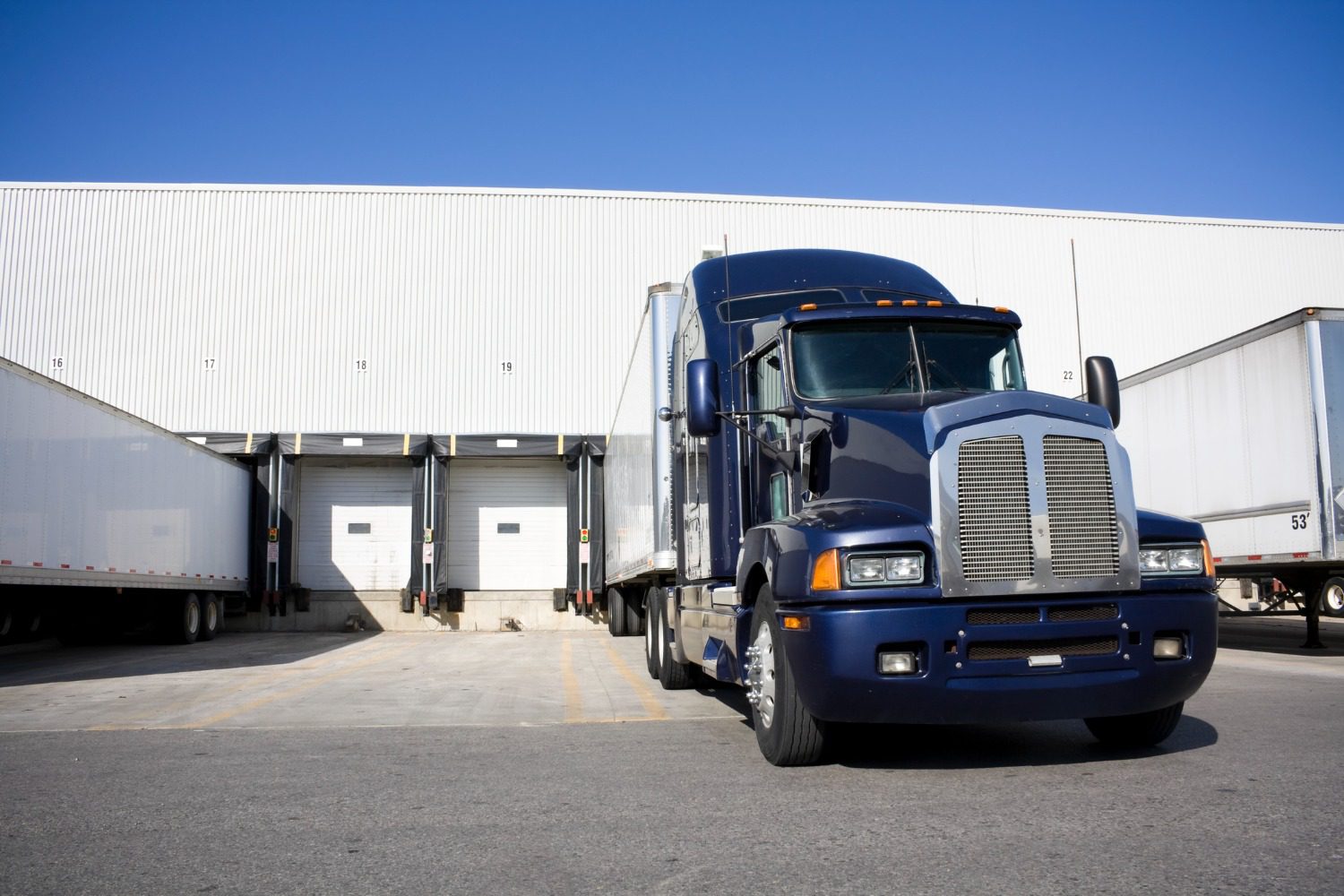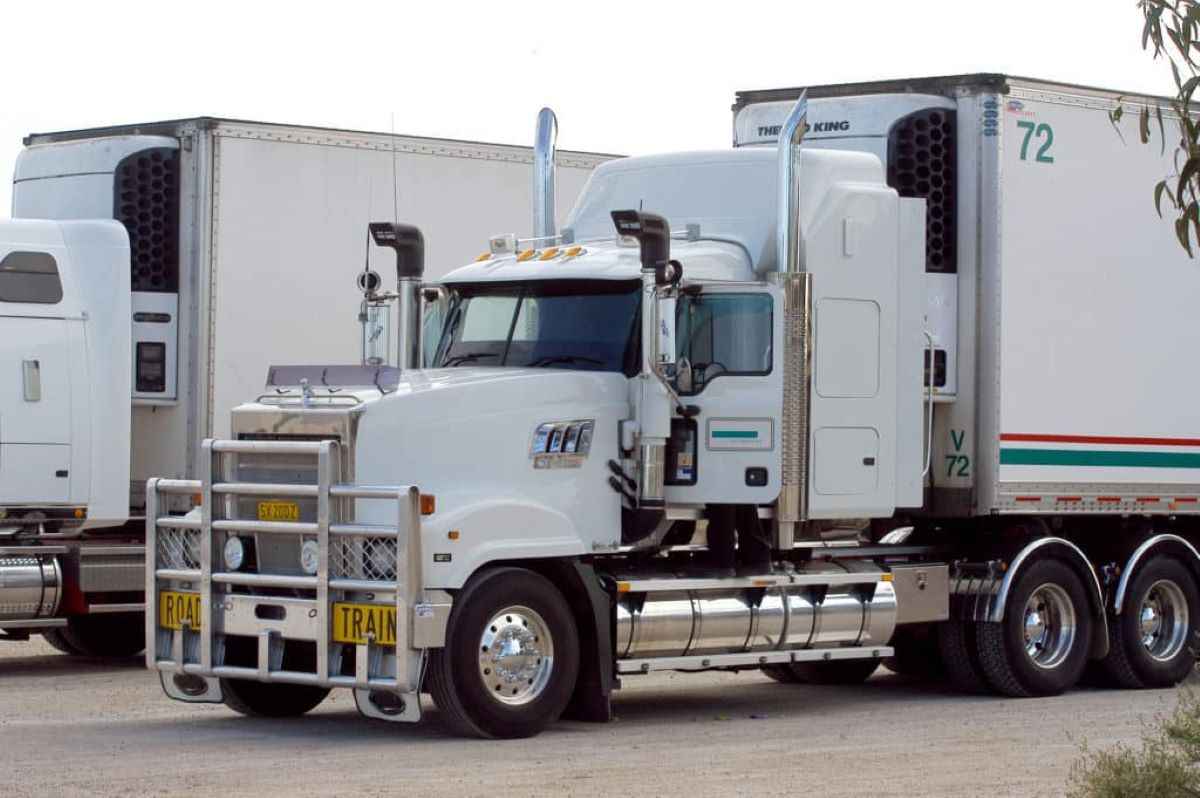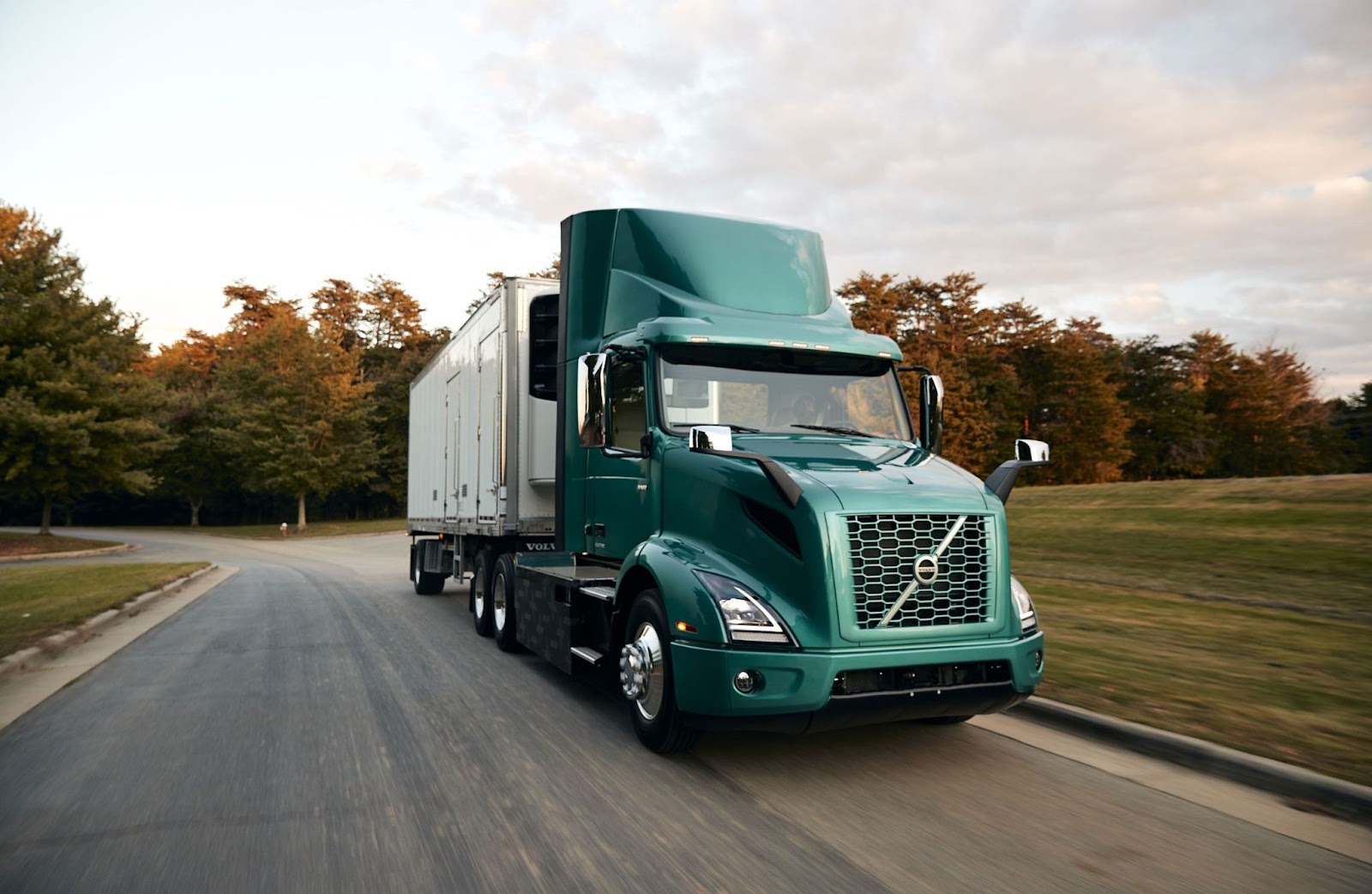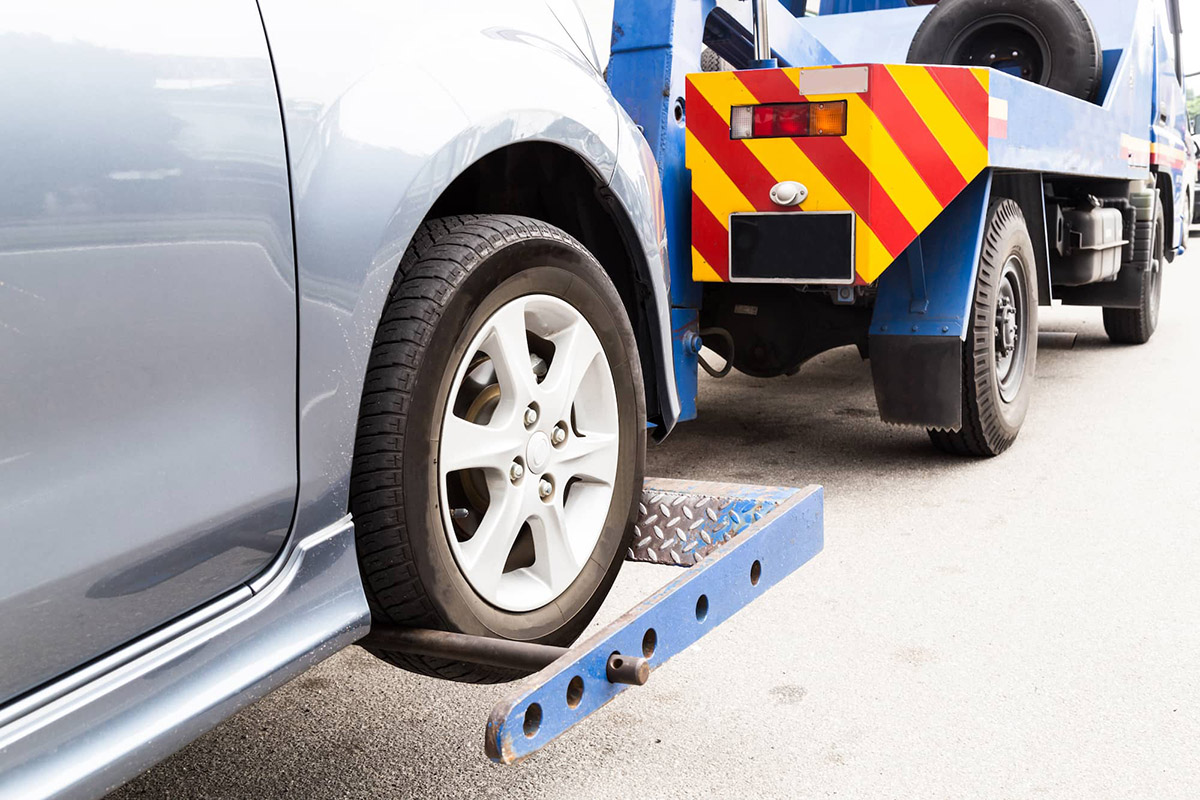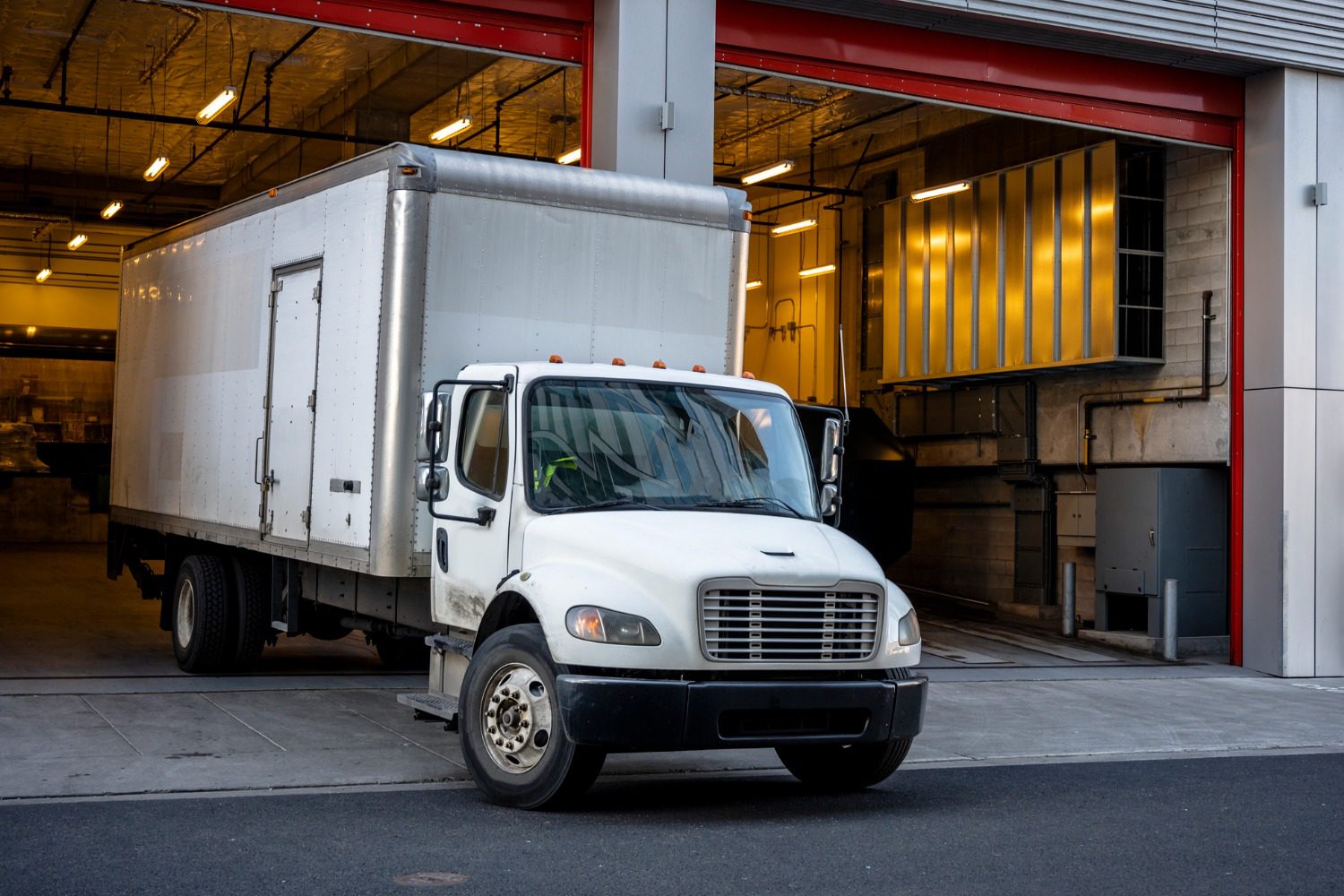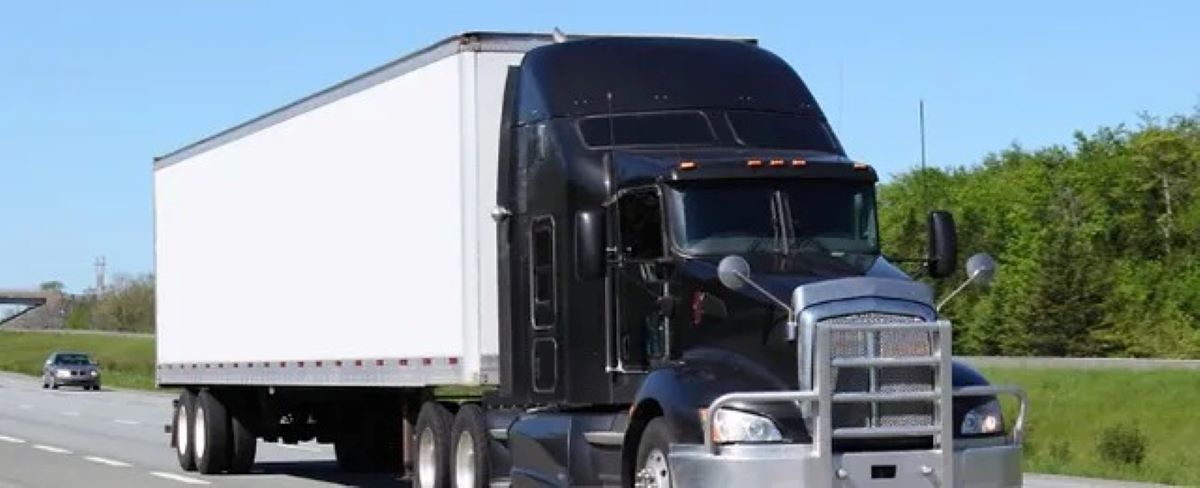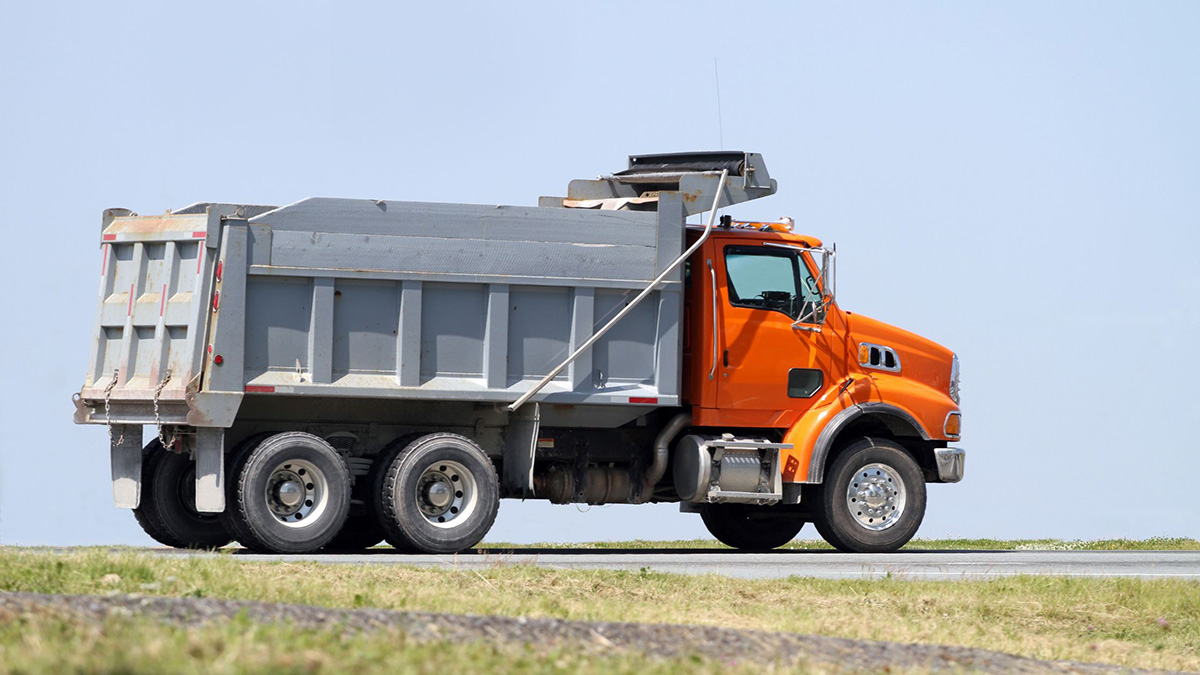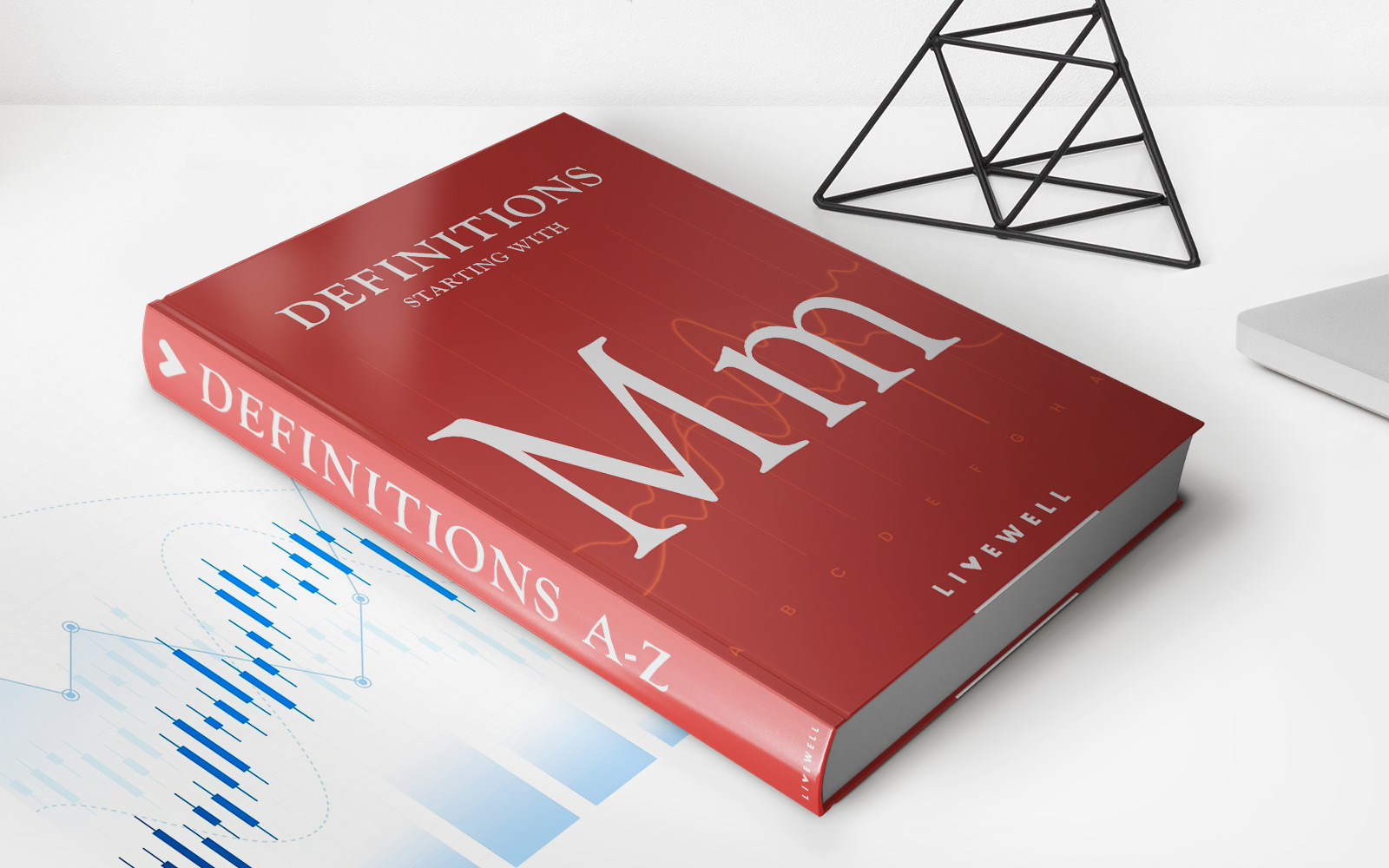

Finance
How Much Is Insurance For A Box Truck?
Modified: December 30, 2023
Looking to finance a box truck? Find out how much insurance will cost for your box truck with our comprehensive guide. Get the best rates and coverage for your business needs.
(Many of the links in this article redirect to a specific reviewed product. Your purchase of these products through affiliate links helps to generate commission for LiveWell, at no extra cost. Learn more)
Table of Contents
Introduction
Welcome to our comprehensive guide on box truck insurance! If you are a business owner or an independent truck driver who relies on box trucks for transportation and delivery services, it is essential to understand the importance of having proper insurance coverage for your vehicle. Box trucks, also known as cube trucks or delivery trucks, play a crucial role in various industries, such as logistics, retail, and moving services.
Insurance for box trucks is specifically designed to protect you, your business, and the cargo you transport. It provides financial coverage in the event of accidents, theft, damage, or any other unfortunate incidents that can occur during the course of your operations. However, determining the cost of insurance for a box truck can be complex, as it depends on several factors.
In this guide, we will explore the factors that affect box truck insurance rates and discuss the various types of coverage available. We will also provide insights into the average cost of insurance for box trucks and share some valuable tips on finding affordable coverage. Lastly, we will highlight common insurance mistakes to avoid.
Whether you are a seasoned trucking professional or new to the industry, understanding box truck insurance is crucial for protecting your business and ensuring smooth operations. So, let’s dive in and explore everything you need to know about insurance for box trucks!
Factors that Affect Box Truck Insurance Rates
When it comes to determining the cost of insurance for your box truck, insurance providers take several factors into consideration. Understanding these factors can help you better comprehend the rates you are quoted and potentially find ways to mitigate the costs. Here are some key factors that influence box truck insurance rates:
- Driving Experience: Your driving experience and record play a significant role in determining your insurance rates. Insurance providers assess your history of traffic violations, accidents, and claims to evaluate your level of risk. Generally, the more experience you have, and the cleaner your driving record is, the lower your insurance premiums are likely to be.
- Location: Where you operate your box truck can impact your insurance rates. Urban areas with higher population densities and congestion are considered more risky in terms of accidents and theft. If you operate in such areas, be prepared for potentially higher insurance premiums.
- Vehicle Value and Age: The value and age of your box truck also affect your insurance rates. Newer and more expensive vehicles typically require higher coverage limits, resulting in higher premiums. On the other hand, an older truck may have lower replacement costs, leading to lower insurance rates.
- Usage: How you use your box truck will influence your insurance rates. Insurance providers consider factors such as the distance traveled, types of cargo transported, and frequency of use. Trucks used for long-haul transportation may have higher premiums than those used for local deliveries.
- Cargo: The nature of the cargo you transport in your box truck can impact your insurance rates. Certain types of cargo may be considered riskier or more valuable, potentially increasing your premiums. It is important to accurately disclose the type of cargo you move to ensure proper coverage.
- Deductible: The deductible is the amount you agree to pay out of pocket before insurance coverage kicks in. Choosing a higher deductible can lower your insurance premiums, but it is important to carefully consider how much you can afford to pay in the event of a claim.
- Insurance Coverage: The type and extent of coverage you choose for your box truck will also impact your insurance rates. Comprehensive coverage that includes protection against accidents, theft, vandalism, and other perils will typically result in higher premiums compared to basic liability coverage.
These are some of the main factors that insurance providers consider when determining the cost of box truck insurance. It is crucial to provide accurate and detailed information about these factors to ensure you receive the appropriate coverage at a fair price. Shopping around and comparing quotes from different insurance companies can also help you find the best rates for your box truck insurance needs.
Types of Coverage for Box Truck Insurance
When it comes to insuring your box truck, there are several types of coverage options available to consider. The specific coverage you choose will depend on your individual needs and the level of protection you require for your business. Here are the main types of coverage for box truck insurance:
- Liability Insurance: This is the most basic type of coverage and is required by law in most states. Liability insurance covers damages and injuries caused to others in an accident where you are at fault. It includes bodily injury liability, which covers medical expenses and legal fees, and property damage liability, which covers damage to someone else’s property.
- Physical Damage Coverage: Physical damage coverage protects your box truck against damage resulting from accidents, collisions, theft, vandalism, and other perils. It typically includes two main components:
- – Collision Coverage: This covers damages resulting from collisions with other vehicles or objects.
- – Comprehensive Coverage: This covers damages resulting from non-collision incidents, such as theft, fire, hail, or vandalism.
- Uninsured/Underinsured Motorist Coverage: This coverage helps protect you if you are involved in an accident with a driver who does not have insurance or has inadequate coverage. It can cover medical expenses, property damage, and other losses.
- Cargo Insurance: Cargo insurance provides coverage for the goods or cargo you transport in your box truck. It protects against theft, damage, or loss of the cargo while in transit. This coverage is particularly crucial if you handle valuable or fragile cargo.
- Medical Payments: Medical payments coverage pays for medical expenses resulting from injuries sustained by you or your passengers in an accident, regardless of who is at fault. It can cover hospital bills, medical treatments, and other related costs.
- Rental Reimbursement: This coverage helps cover the cost of renting a temporary replacement box truck if your insured vehicle is in a repair shop for an extended period due to a covered claim.
- General Liability Insurance: In addition to the specific coverage for your box truck, you may also need general liability insurance to protect your business from third-party claims. This can cover lawsuits, injuries, property damage, and other liabilities not directly related to your truck.
It is important to thoroughly assess your business needs and consult with an insurance professional to determine the appropriate coverage options for your box truck. Each type of coverage provides a different level of protection, and you may need a combination of these coverages to adequately safeguard your business and assets.
Average Cost of Insurance for Box Trucks
Determining the average cost of insurance for box trucks can be challenging, as it depends on various factors such as the value of your truck, the level of coverage you choose, your location, driving record, and the nature of your business. However, we can provide you with a general idea of the typical cost range for box truck insurance.
On average, box truck insurance can range from $1,000 to $4,000 per year for a single vehicle. However, please note that this is just a rough estimate, and your actual premiums may vary. Various factors can affect the cost, including:
- Type of Box Truck: Different types of box trucks have different insurance rates. Factors such as the size, weight, and capacity of the truck can impact the cost.
- Deductibles and Coverage Limits: The deductible and coverage limits you choose for your policy can affect your premiums. A higher deductible and more extensive coverage will typically result in higher premiums.
- Driving Record: Your driving record plays a crucial role in determining your insurance rates. If you have a clean driving record with no accidents or violations, you can expect lower premiums.
- Location: The location where you operate your box truck can impact the cost of insurance. Insurance companies consider factors such as crime rates, traffic congestion, and risks specific to that area.
- Business Experience: Insurance providers may take into account the number of years you’ve been in business as a box truck operator. More experienced drivers may be seen as less risky, resulting in lower premiums.
- Cargo Type: The type of cargo you transport may affect your insurance rates. Hazardous materials or high-value goods may result in higher premiums due to the increased risk involved.
It is crucial to obtain quotes from multiple insurance providers, as rates can vary significantly. By comparing quotes and considering the coverage options, deductibles, and limits, you can find an insurance policy that suits your budget and provides adequate protection for your box truck.
Remember that the cost of insurance is just one factor to consider. It is equally important to focus on the quality of coverage and the reputation and reliability of the insurance provider. Look for a company with a good track record of customer service and prompt claims handling to ensure peace of mind and protection for your box truck.
Tips for Finding Affordable Box Truck Insurance
While box truck insurance is a necessary expense for trucking businesses, there are several ways you can potentially save money and find more affordable insurance coverage. Here are some practical tips to help you secure affordable box truck insurance:
- Shop Around and Compare Quotes: Obtain quotes from multiple insurance providers to compare rates and coverage options. Each company has its own algorithms for calculating premiums, so shopping around can help you find the best deal.
- Consider a Higher Deductible: Increasing your deductible can lower your insurance premiums. However, be sure to choose a deductible that you can comfortably afford to pay in the event of a claim.
- Bundle Policies: If you have other insurance needs such as general liability or commercial auto insurance, consider bundling them with your box truck insurance. Insurance companies often offer discounts for multiple policies.
- Ask About Available Discounts: Inquire about any available discounts. Common discounts include safe driving records, completion of defensive driving courses, and the installation of safety features on your truck.
- Improve Security Measures: Installing anti-theft devices, alarm systems, and GPS tracking devices on your box truck can reduce the risk of theft and potentially lower your insurance premiums.
- Review and Update Coverage Regularly: Regularly review your insurance coverage to ensure you’re not paying for unnecessary coverage or underinsured. As your business evolves, your insurance needs may change, and updating your coverage accordingly can help optimize costs.
- Maintain a Good Driving Record: Safe driving practices are not only essential for road safety but can also help you maintain a clean driving record. Avoid accidents and traffic violations, as a good driving record can lead to lower insurance rates.
- Consider Joining an Association: Some professional associations or industry groups offer discounted insurance rates to their members. Explore membership options and evaluate the benefits they provide, including potential insurance discounts.
- Work with an Independent Agent: Consider working with an independent insurance agent who can shop for the best rates and coverage options from multiple insurance providers on your behalf.
While it’s important to find affordable box truck insurance, it’s equally crucial to ensure you have adequate coverage. Cutting corners on coverage may save you money upfront, but it can leave you financially vulnerable in the event of an accident or other unforeseen circumstances. Balancing affordability with appropriate coverage is key.
By implementing these tips and staying proactive in managing your insurance needs, you can find cost-effective and comprehensive insurance coverage for your box truck, allowing you to protect your business and assets without breaking the bank.
Common Insurance Mistakes to Avoid
When it comes to insuring your box truck, it’s crucial to avoid common insurance mistakes that can leave you underinsured, cost you more money, or create unnecessary hassles. Here are some common insurance mistakes to be aware of and avoid:
- Not Shopping Around: Failing to shop around and compare quotes from different insurance providers can result in paying more than necessary. Take the time to explore multiple options and choose a policy that offers the best coverage at the most affordable price.
- Underinsuring Your Box Truck: Choosing the minimum required coverage or inadequate coverage to save money can leave you financially vulnerable in the event of an accident or loss. Evaluate your business needs and the value of your truck to ensure you have sufficient coverage.
- Overlooking Additional Coverage: Neglecting to consider additional coverage options such as cargo insurance, rental reimbursement, or uninsured motorist coverage can leave you exposed to potential risks and expenses. Assess your business operations and choose the appropriate coverage to protect your business comprehensively.
- Not Disclosing Accurate Information: Providing inaccurate or incomplete information to the insurance company can lead to issues when filing a claim. Be honest and thorough when disclosing details about your driving history, the nature of your business, and the cargo you transport.
- Ignoring Safety Measures: Neglecting to implement proper safety measures on your box truck, such as installing security systems, GPS tracking devices, or driver safety training, can result in higher insurance premiums. Take proactive steps to reduce risks and demonstrate your commitment to safety.
- Not Updating Coverage: Failing to review and update your coverage regularly can lead to being underinsured or paying for unnecessary coverage. As your business evolves, make sure to reassess your needs and adjust your coverage accordingly.
- Overlooking Discounts: Many insurance providers offer discounts for safe driving records, completing training courses, or bundling multiple policies. Failing to take advantage of available discounts can result in missing out on potential savings.
- Not Reading the Fine Print: It’s important to carefully read and understand the terms and conditions of your insurance policy. Pay attention to exclusions, limitations, and policy details to avoid surprises when filing a claim.
- Not Seeking Professional Advice: Insurance can be complex, and trying to navigate it alone may lead to mistakes. Consider consulting with an insurance professional or independent agent who can provide guidance and ensure you have the right coverage for your specific needs.
Avoiding these common insurance mistakes can help you make informed decisions when it comes to insuring your box truck. By being diligent, proactive, and well-informed, you can secure the appropriate coverage to protect your business, assets, and peace of mind.
Conclusion
Insurance for your box truck is a critical aspect of protecting your business and ensuring smooth operations. Understanding the factors that affect insurance rates, the types of coverage available, and how to find affordable insurance is essential for every box truck owner or operator.
When determining the cost of insurance for your box truck, factors such as your driving experience, location, vehicle value and age, usage, cargo, deductible, and coverage options come into play. It is important to disclose accurate information to insurance providers and explore multiple quotes to find the best coverage at a fair price.
Choosing the right types of coverage for your box truck is crucial. Liability insurance, physical damage coverage, cargo insurance, and other additional coverages can provide the necessary protection for your vehicle, cargo, and business liability.
While insurance is a necessary expense, there are ways to find affordable coverage. Shopping around, bundling policies, considering a higher deductible, and implementing safety measures are some effective strategies for obtaining affordable premiums. Regularly reviewing and updating your coverage, taking advantage of available discounts, and seeking professional advice are also important steps for securing the most cost-effective insurance options.
Avoiding common insurance mistakes such as underinsuring, providing inaccurate information, or failing to update coverage can save you from financial setbacks and unnecessary complications. By being proactive and well-informed, you can find the right insurance coverage for your box truck that meets your business needs and budget.
Remember, insurance is not just a legal requirement; it is a crucial investment in the protection of your business. Take the time to assess your insurance needs, explore your options, and make informed decisions to safeguard your box truck and ensure a secure future for your business.
